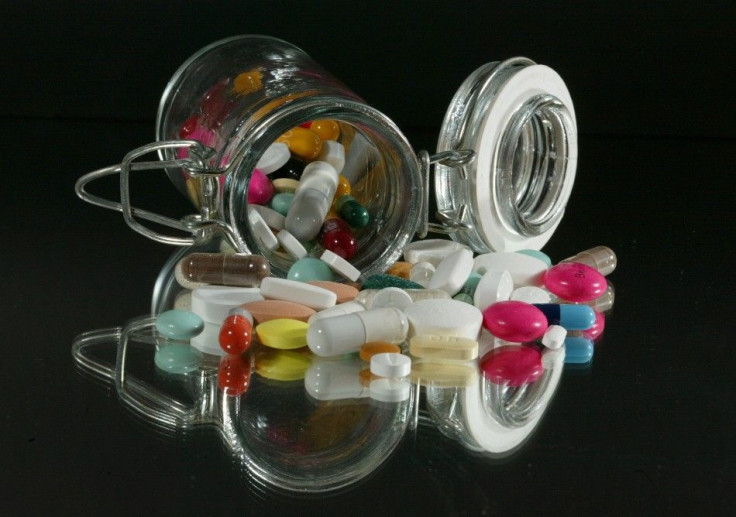Big Bets Aim To Jolt Heart Drug Sales Back To Life

(Reuters) - The expiry of patents on profitable heart medicines is soon going to erode one of the main sources of drug company profits, and risky bets on new medicines to replace them may not make up for the lost sales.
High-octane salesmanship was still on show at giant trade stands during this week's European Society of Cardiology congress - the world's biggest heart meeting with 28,000 participants - but the razzmatazz hides a business in trouble.
Patent expiries mean annual sales of 15 different categories of heart drugs are set to fall by more than a quarter by 2017, from $83 billion in 2011 to $60 billion, according to consensus analyst forecasts compiled by Thomson Reuters Pharma.
This year will see the biggest single hit, after the loss of patent protection on Pfizer's record-selling cholesterol pill Lipitor and Sanofi and Bristol-Myers Squibb's blood thinner Plavix.
Those two medicines were the biggest sellers in any disease area last year, with combined global turnover of $20 billion - a figure likely to be halved in 2012.
Big Pharma hopes a new generation of drugs can replace them, yet recent product launches have been sluggish and new heart medicines still in tests represent some of the biggest gambles ever made in the industry's molecular casino.
Leading cardiologists, who follow drug development closely, warn that the hurdle for pricey new heart medicines is getting ever higher as economic pressures hit health budgets worldwide.
"We have a lot of good generic drugs out there and I think doctors are more cognizant of the economic consequences of the therapies they are prescribing than ever before," said Douglas Weaver, head of cardiology at Henry Ford Health System in Detroit.
With new mass-market heart drugs requiring huge clinical trial programs costing up to a $1 billion to prove both safety and efficacy, these are anxious times for the industry.
"It must be making the CEOs of the companies pretty nervous," said Weaver.
"GOOD" CHOLESTEROL
Deutsche Bank analysts believe some new drugs could, in theory, generate annual sales of $10 billion, since there is still plenty to play for in reducing the rate of heart attacks and strokes.
But the risks are high, raising questions for shareholders as to whether their money is being well spent.
Merck & Co, for example, announced this week that more than 20,000 patients had been enrolled into a trial of anacetrapib, a drug to raise levels of "good" HDL cholesterol, which would in theory reduce the risk of heart disease.
However, two similar drugs from Pfizer and Roche have already failed, leaving doctors wary about the approach.
"I think we are a long way from showing that raising HDL really works. I've haven't seen anything that convinces me that we have a winner yet," said Russell Luepker, a heart expert at the University of Minnesota.
Merck is not alone in betting big. Sanofi and its partner Regeneron Pharmaceuticals last month launched a 22,000-patient program to test a new kind of cholesterol fighter that blocks a protein called PCSK9.
Heinz Drexel, a cardiologist at the Vorarlberg Institute for Vascular Investigation and Treatment in Feldkirch, Austria, said it was a "fascinating" approach, but he questioned whether the need to inject the drug every two weeks would curb its use.
GlaxoSmithKline, meanwhile, is testing a heart drug called darapladib in trials involving 27,000 patients, despite mixed results with the compound in mid-stage clinical tests.
GSK gained full control of the product, along with lupus drug Benlysta, after agreeing to buy U.S. biotech firm Human Genome Sciences last month.
Even if they get to market, recent experience suggests these products may have a tough time carving out sales.
Both Eli Lilly and AstraZeneca have struggled to get newer and more potent rivals to Plavix adopted, and Lilly suffered a fresh setback this week when its drug Effient failed to beat Plavix in a key trial.
REPLACING WARFARIN
One area where drug companies and industry analysts do see a big market emerging is in oral anti-coagulants offering an alternative to Warfarin, a notoriously difficult drug to use. Anti-coagulants are used to prevent diseases such as thrombosis, caused by blood clots.
But even here sales expectations have fallen substantially in the past two years as take-up has disappointed.
Data two weeks ago from a U.S. patient registry found only 12.6 percent of those eligible were being prescribed Boehringer Ingelheim's Pradaxa or Bayer and Johnson & Johnson's Xarelto - the first two new anti-coagulants on the market - amid concerns over price and possible bleeding risks.
The picture of slow take-up is apparently similar in Europe. Drexel at the Vorarlberg Institute reported use of the new agents in western Austria was also around 13 percent.
Steen Dalby Kristensen, consultant cardiologist at Denmark's Aarhus University Hospital, said: "We will take it gradually and try and get more experience with the drugs."
The next few years could make or break some drug companies, given the big investment needed to sell heart drugs to family doctors, according to Marietta Miemietz, an analyst with Primavenue Advisory Services.
"The trend we see with a lot of pharma companies is that they are more and more focusing on specialty markets and selectively exiting the primary care space or downsizing their exposure," she said.
"It doesn't make sense to maintain the large sales forces unless they have a compelling late-stage pipeline."
(Editing by Kate Kelland and Peter Graff)
© Copyright Thomson Reuters {{Year}}. All rights reserved.





















